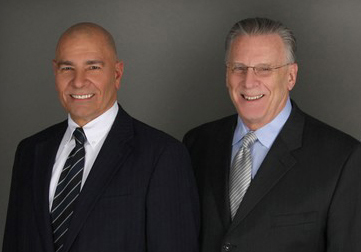It is with great pleasure I welcome Thomas Craft and Lawrence Barrett from Independent Pharmacy Consulting Group back to share with us their second article on an extremely important topic to pharmacy owners, or anyone considering pharmacy ownership. Their first article about why owners need to have a buy-sell agreement explained the fundamental importance of such a document.
Today they will continue to share their expertise on this subject by explaining some of the types of buy-sell agreements that can be prepared to suit the needs of pharmacy owners.
Six Things an Independent Pharmacist Should Consider Before Preparing a Buy-Sell Agreement
Our second installment looks at the different types of Buy-Sell Agreements available to determine which type is appropriate for your pharmacy and particular situation.
What Type of Buy-Sell Agreement is Right for You?
Closely-held business owners usually rely on their pharmacy for a lot of things including:
- Enjoying a good standard of living for themselves and their family
- Supporting employees, their families and their communities
- Turning the business into money at retirement or death
To protect the pharmacy and pharmacy owner’s family, and be certain the pharmacist’s goals are met, a properly drafted and implemented Buy-Sell Agreement can act as a key tool to help achieve such goals.
Buy-Sell Structures
Buy-Sell Agreements can be structured to meet the needs of both the pharmacy and the owners, taking into consideration tax consequences and individual goals. If the pharmacy is obligated to buy the interests of the departing or deceased owner, the structure is a redemption, or entity purchase. If each owner is obligated to buy the shares of the departing or deceased owner, it is a Cross-Purchase. If a family member, non-owner employee or friendly competitor is in line to purchase the pharmacy from a sole ownership arrangement, it is a Unilateral or One-Way Buy-Sell. Finally, if unsure whether the pharmacy or remaining owners should buy the pharmacy, a Wait-and-See Buy-Sell is used.
Two critical issues in structuring Buy-Sell Agreements are the tax consequences and methods to fund the Buy-Sell. Tax ramifications based on the type of agreement and whether the pharmacy is a C corporation, S corporation, Limited Liability Company or Partnership will be covered in the sixth installment of our series. There are several ways that the company could fund this purchase including but not limited to cash, borrowing, installment sale, or life insurance. Funding mechanisms will be discussed in Part Four.
Redemption Agreement
Upon the occurrence of the specified event, the corporation is required to buy and the departing owner and the owner or owner’s family are obligated to sell the agreed-upon number of shares at the price or according to a formula stated in the agreement. The seller receives cash and/or notes and the company receives the stock in the exchange.
Here’s how a redemption arrangement may work:
Sam and Dave are equal 50 percent owners of Sam & Dave’s Pharmacy which is valued at $1 million. Sam and Dave enter into an agreement together with the company, where the company agrees to buy the departing owner’s shares in the event of a triggering event such as death, disability or retirement.
At Dave’s death, the company must purchase Dave’s shares for $500,000, and Dave’s heirs must sell their inherited shares to the company for $500,000. After the transaction is completed, Sam still holds his 500 shares, but they now comprise 100 percent of the company. The 500 shares acquired by the company are held as treasury stock and may be used for future purposes.
Cross-Purchase Agreement
This agreement is between existing shareholders or owners of the pharmacy and obligates those remaining owners to purchase the shares of the departing owner at a predetermined price or according to a predetermined valuation formula. The pharmacy and its capital structure are not involved in the transaction. If multiple owners are involved, the agreement may state that certain owners are allowed to purchase differing amounts of stock; for example, to ensure control is held by certain owners. Each owner must provide their own funding.
Here’s how a Pharmacy Cross-Purchase arrangement may work:
Sam and Dave are equal 50 percent owners of Sam & Dave’s Pharmacy which is valued at $1 million. Sam and Dave enter into an agreement under which each of the owners agrees to do the buying from the other owner upon a triggering event such as death, disability or retirement.
Assuming Dave dies, Sam buys Dave’s shares from his heirs for $500,000 and Dave’s heirs sell their inherited shares to Sam for $500,000. After the transaction is completed, Sam holds his 500 shares plus Dave’s 500 shares for 100 percent of the company.
One-Way Buy-Sell Agreement
Many small- and medium-sized pharmacies are owned by a single person. These owners may find Buy-Sell Agreements difficult since there is no other shareholder to buy or take over the pharmacy if the owner dies, becomes disabled or wants to sell his or her shares in the pharmacy.
However, without a Succession Plan, the pharmacy owner may lose significant value and customer goodwill developed from years of hard work and the family may stand to lose an important source of income. Faithful, long-term employees may suddenly be out of work. Business creditors may have pending claims to be handled, or may be unwilling to extend additional credit to the pharmacy absent the owner’s presence. Even if the pharmacy is to be transferred to heirs according to the estate plan, heirs may not be prepared to run the pharmacy. Many small pharmacies simply do not outlast their founder, no matter how strong their market presence, due primarily to lack of Business Succession Planning.
A potential successor, ideally, may be among family members such as a child, a valued employee, or even a competitor. A simplified type of “Buy-Sell Agreement” typically used by pharmacies with multiple owners could be used to facilitate your Business Succession Plan.
The owner would contract to sell and the purchaser would contract to purchase the pharmacy ownership interest upon the occurrence of a specified event discussed in the first article. The agreement may also provide that the purchaser would not assume the debts and obligations of the business. Your executor would use cash from the purchase to payoff business obligations.
Wait-and-See Agreement
This agreement also referred to as the “optional” Buy-Sell Agreement is sometimes implemented as a way for the owners of a pharmacy to hedge their tax bets. It is essentially a hybrid between the Redemption Agreement and Cross-Purchase Agreement which allows owners to wait until the agreement is exercised to determine which option is best for the pharmacy and their family. The pharmacy has first rights to purchase its stock. If the pharmacy does not exercise its right, the shareholders have the right to purchase the stock. If the shareholders fail to exercise their rights, the pharmacy corporation must purchase all remaining shares. All purchases must be made at the predetermined price or according to a predetermined valuation formula. It can become complex in multiple owner situations when certain owners may not want to increase their percentage holdings in the company.
Next
In our third installment, we will look at how the price of the pharmacy’s stock is determined when using a Buy-Sell Agreement to ensure a fair outcome to the departing shareholder and their family, as well as the remaining shareholders.
Lawrence C. Barrett and Thomas H. Craft are registered representatives of Lincoln Financial Advisors Corp.
Securities offered through Lincoln Financial Advisors Corp., a broker/dealer. Member SIPC. Investment advisory services offered through Sagemark Consulting, a division of Lincoln Financial Advisors, a registered investment advisor. Insurance offered through Lincoln affiliates and other fine companies. Neither Lincoln Financial Advisors nor its representatives offer legal or tax advice. You may want to consult a legal or tax advisor regarding this information as it relates to your personal circumstances. 28601 Chagrin Boulevard, Suite 300, Cleveland, OH 44122. CRN-1036498-101414
Independent Pharmacy Consulting Group, LLC is not an affiliate of Lincoln Financial Advisors Corp.
Buy-Sell Agreement Independent Pharmacy Consulting Group Pharmacy Ownership
Last modified: April 17, 2023
















